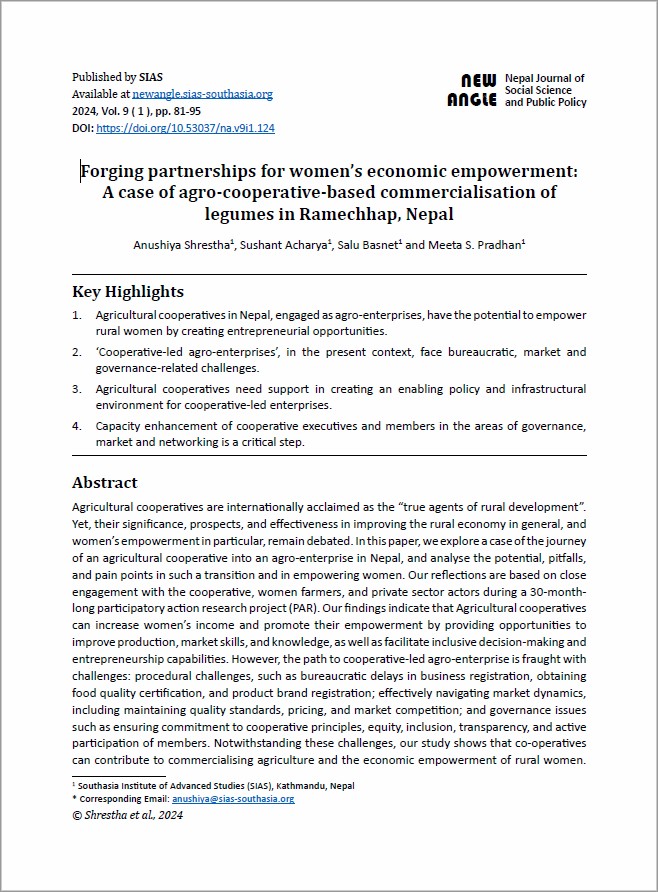Call for papers: Special issue on “Nepal’s Community Forestry at the crossroad” [Deadline Extended]
New Angle: Nepal Journal of Social Science and Public Policy
Vol 10 (1), 2025
Community forestry has long been acclaimed as a successful community-based forest management model in achieving local democracy, forest restoration, livelihoods and decentralization. However, forest-people relationships conceptualized in the 1970s to develop models of community forestry have changed substantially today as new and different socio-economic conditions are emerging and forest dynamics are shifting according to the changed socio-economic processes. These social and ecological changes have also resulted changed local collective action. Nevertheless, there is limited understanding on what challenges and opportunities these changes bring for the community forestry and in what ways new collective action practices are shaping forestry in Nepal. These comprehensive and complex changes and dynamics demand a rigorous scholarly attention to understand the nature, scale and influence of such changes that will pave the way for future direction of the management of the community-based forest managements in general.
In this context, Southasia Institute of Advanced Studies (SIAS) is pleased to call for the papers covering broad and diverse dimensions of the community forestry in the changing context of Nepal for the special issue of the “New Angle: Nepal Journal of Social Science and Public Policy”. We welcome researchers and practitioners to submit research articles related, but not limited to the following themes:
- Institutional evolution, innovations and challenges of community forestry (CF) in the changing context triggered by factors such as climate, migration, remittances etc.
- The changing role of women, gender-based constraints (or opportunities) in the management of community forestry, particularly in the context of increasing male-outmigration.
- Changes in the forest conditions and community dynamics and the state response to forest management.
- Impact of socio-economic-ecological changes in participation and community collective action.
- Institutional incentives to the community that maintain (and promote) community forestry
- Scientific forestry and technical forest management
- Community innovations and shifting collective action
- Community forestry and climate change.
- Community forestry, biodiversity and ecosystem services
- Forest-based enterprise and commercialization
- Changing community-forest relations
- Democracy, decentralization and community
We hope to publish four broad types of articles, i.e., analytical research papers, opinion/commentary pieces, literary review articles and empirically oriented essays highlighting insights based on practice-based knowledge from the field. The research papers can include articles that are based on rich empirical data, preferably collected fresh from the field. However, rigorous analysis of secondary/historical sources will also be accepted. Shorter opinion pieces/commentary will also be accepted. All articles need to be guided by a well-formulated purpose and clearly defined research questions.
Please send your abstracts of 200-300 words for the research paper, review article, opinion piece or empiric reports together with a short bio of author/s of 150-200 words to newangle@sias-southasia.org by 15th December 2024 [Extended]. English is the preferred language of the publication and we are eager to publish articles in Nepali language as well. The deadline for submission of full contributions will be 1st March 2025.
Chief Editor: Dr. Dil Khatri
Special Issue Editors: Dr Govinda Paudel, Dr Dinesh Paudel, Dr Rajan Parajuli and Dr Prativa Sapkota
Managing Editor: Binod Adhikari
Read more about Call for papers: Special issue on “Nepal’s Community Forestry at the crossroad” [Deadline Extended]






